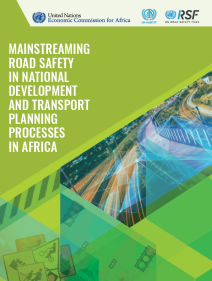Road traffic injury has been a persistent and worsening public health issue across Africa. From 2000 to 2019, the number of road traffic deaths steadily increased, while deaths from other major causes on the continent, such as malaria and HIV/AIDS, decreased.
Although some significant initiatives are under way at the continental, subregional, national and city levels, the overall situation is worsening. A concerted effort is required to slow, halt and reverse the road traffic injury crisis that is sweeping across an increasingly mobile and prosperous Africa.
In 2016 alone, the total socioeconomic cost of road crashes on the African continent was estimated at $162 billion, roughly equivalent to one tenth of the total gross domestic product (GDP) that year of sub-Saharan Africa or the combined GDP that year of Benin, Burkina Faso, Côte d’Ivoire, Ghana, Guinea, Liberia, Mali, Sierra Leone and Togo.
The inclusion of road safety as a target in Sustainable Development Goals 3 (health and wellbeing) and 11 (sustainable communities) has been beneficial, but there is still a need for road safety to be prioritized by national Governments and in planning processes. ECA has been working with UN-Habitat to develop a policy platform for mainstreaming road safety into national development plans.

